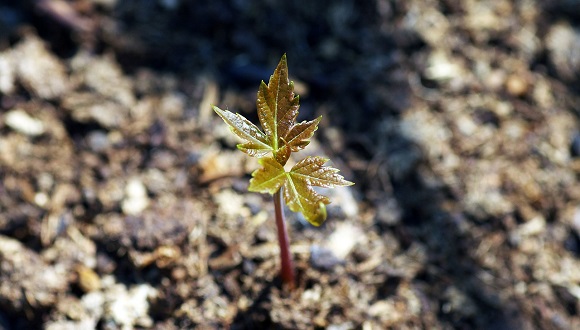Afforestation neutralizes soil pH
Afforestation is a type of land use change project primarily designated for wood production, soil and water conservation, increasing carbon storage and mitigating climate change. This study shows that afforestation changes, moreover, soil pH, that is a key soil variable.

Soil pH, which measures the acidity or alkalinity of soils, is associated with many soil properties such as hydrolysis equilibrium of ions, microbial communities, and organic matter contents. Soil pH regulates soil biogeochemical processes and has cascading effects on terrestrial ecosystem structure and functions.
Afforestation has been widely adopted to increase terrestrial carbon sequestration and enhance water and soil preservation. However, the effect of afforestation on soil pH is still poorly understood and inconclusive
Josep Peñuelas, a CSIC researcher based at CREAF, has participated in a study published in the journal Nature Communications. Scientists investigate the afforestation-caused soil pH changes with pairwise samplings from 549 afforested and 148 control plots in northern China, across different tree species and soil pH gradient.
Authors find significant soil pH neutralization by afforestation—afforestation lowers pH in relatively alkaline soils but raises pH in relatively acid soils. The soil pH thresholds (TpH), the point when afforestation changes from increasing to decreasing soil pH, are species-specific, ranging from 5.5 (Pinus koraiensis) to 7.3 (Populus spp.) with a mean of 6.3.
The study provides improved understandings on how afforestation impacts soil pH across a broad range of soil types and afforestation tree species, which is critical for developing climate change mitigation strategies and ecological sustainability plans.
“Our study indicates that afforestation has the potential to alleviate soil acidification caused by enhanced acidic deposition with the appropriate selection of tree species and thus could further increase ecosystem productivity and carbon sequestration”, said Dr. Songbai Hong from Sino-French Institute for Earth System Science, Beijing University
“Our findings indicate that afforestation can modify soil pH if tree species and initial pH are properly matched, which may potentially improve soil fertility and promote ecosystem productivity”, said Prof. Josep Peñuelas from CREAF-CSIC Barcelona.
According to the authors, further field studies are still needed to determine best tree species for afforestation according to soil properties, water availability and climate suitability, and designated ecosystem and socioeconomic goals
REFERENCED ARTICLE:
Hong S., Piao S., Chen A., Liu Y., Liu L., Peng S., Sardans J., Sun Y., Peñuelas J., Zeng H. (2018). Afforestation neutralizes soil pH. Nature Communications, 9:520. DOI: 10.1038/s41467-018-02970-1






